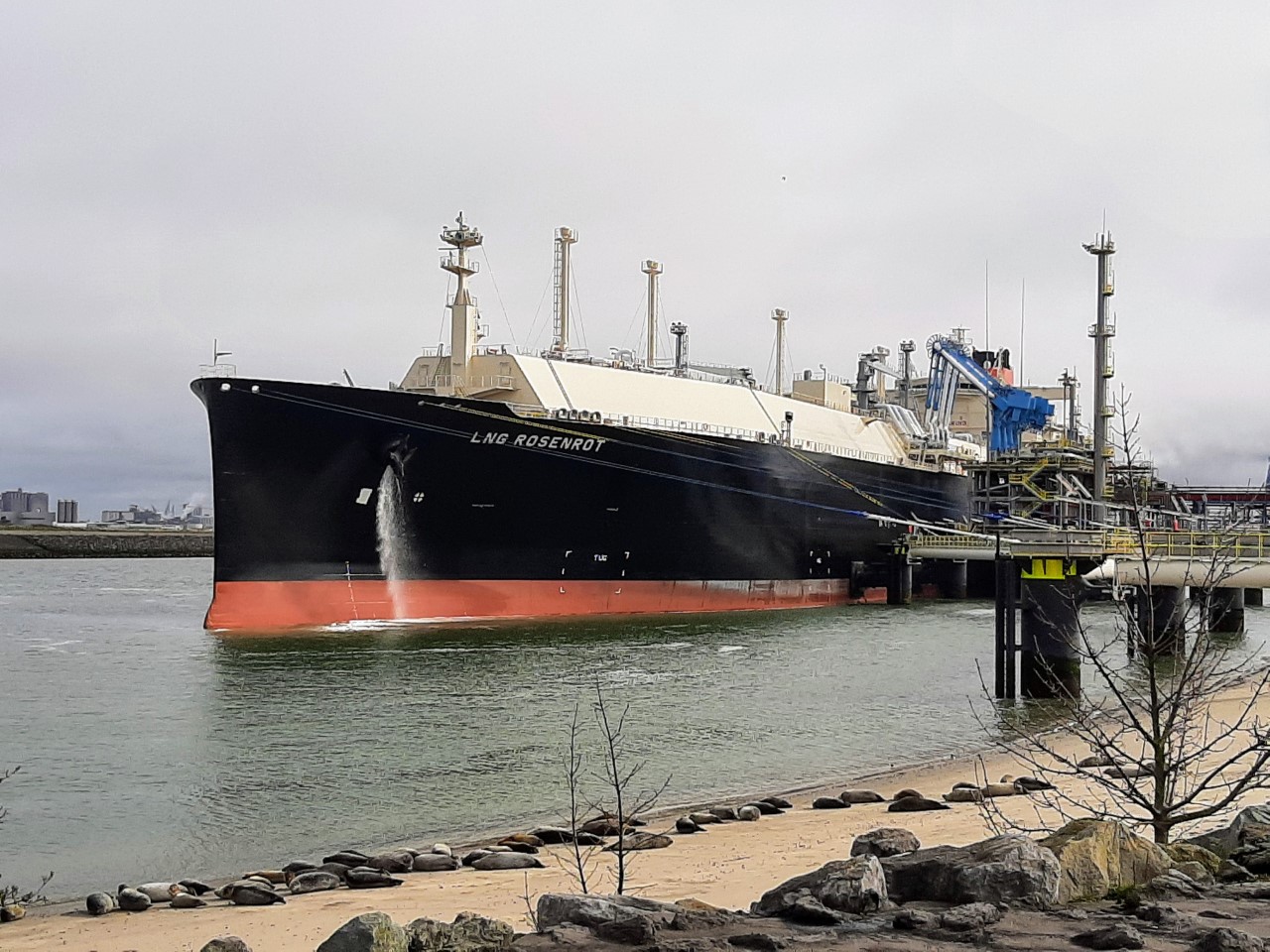German energy firm Uniper, a unit of Finland’s Fortum, confirmed on Monday it has revived plans to build an LNG import terminal in Wilhelmshaven, as Germany looks to reduce dependence on Russian pipeline gas imports.
This follows a recent announcement by Chancellor Olaf Scholz that Germany had decided to back the construction of two LNG import terminals as part of efforts to expand options for gas imports.
The two facilities include the Brunsbuettel LNG terminal and Uniper’s LNG import and hydrogen facility in Wilhelmshaven.
Uniper previously planned to build the Wilhelmshaven FSRU terminal. The firm switched plans from LNG to hydrogen last year.
“In order to further diversify the portfolio and as requested by the German government, Uniper plans to bring LNG directly to the German market,” the firm said in a statement on Monday.
However, Germany currently has no large LNG import terminals.
“Uniper has therefore resumed its planning for an LNG terminal in Wilhelmshaven,” it said.
Uniper did not provide any additional details on the project.
The original plans included installing an FSRU in Wilhelmshaven with a sendout capacity of 9.78 bcm per year helping diversify German gas supplies.
Japan’s MOL and Uniper signed a build and charter deal for the 263,000-cbm FSRU. After Uniper’s announcement regarding the switch to hydrogen, MOL changed the FSRU order to an LNG carrier at South Korea’s DSME.
Novatek ammonia talks on hold
Besides resuming plans for LNG imports, Uniper said these activities would be “closely linked” to its plans to make Wilhelmshaven a “green energy hub”, with green ammonia import and hydrogen production to fulfill more than 10 percent of the German hydrogen demand in 2030.
In December, Rusian LNG giant Novatek said it has signed a deal to supply ammonia from its planned Obskiy gas chemical complex to Uniper.
Under the term sheet, Novatek would deliver up to 1.2 million tons of ammonia per year to primarily German market.
Uniper said in the statement that talks with Novatek on the import of ammonia were “put on hold”.
Gate and Grain LNG capacity
Germany is a major gas importer and it imported just under 90 bcm of natural gas in 2021.
The country gets about 55 percent of these supplies from Russia, followed by Norway with about 30 percent, and the Netherlands with about 13 percent, according to Germany’s Ministry for Economic Affairs and Climate
Uniper’s gas midstream business comprises a portfolio of around 370 TWh of long-term gas supply contracts. Of these, about 200 TWh originate from Russia.
The firm said there were no indications of a restriction of Russian gas supplies so far.
Moreover, Uniper said it continues to implement its strategy, which includes making energy supply “more diversified and secure”. This includes procuring additional volumes of LNG for Germany.
“Uniper is continually diversifying its gas portfolio by increasing its LNG portfolio,” it said.
It has over the years increased its long term capacity at the Grain LNG facility in the UK and the Dutch Gate LNG terminal.
Gate, a joint venture of Vopak and Gasunie, and Uniper signed a new capacity deal last year. Coming October 2024 Uniper would be the biggest capacity holder at Gate with a capacity of 4 bcm.
“This forms a good foundation to establish LNG as an important part of the German supply portfolio,” Uniper said.
Last year, Uniper traded more than 360 cargoes worldwide. The firm has seven LNG vessels under long- and mid-term charters.

